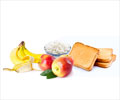That time of the month when several women in developing countries do not have access to affordable, quality sanitary pads often makes their periods difficult and unbearable. Now, researchers are helping to combat the problem by designing affordable pads made from natural, available materials.
Researchers at North Carolina State University are developing sanitary pad from materials readily available in local areas - such as the fibre from banana stems in Rwanda.The team from Department of Wood and Paper Science took banana stem fibres and put them through a series of chemical treatments and mechanical actions in order to change their composition from coarse, waxy fibers into soft, billowy materials that are more amenable to absorbing liquid.
Students in a textile engineering senior design course, led by Dr. Russell Gorga, associate professor of textile engineering, then incorporated the material into comfortable, effective and environmentally benign covers to create the prototypes currently under evaluation.
The final prototype was produced by David W. Allen, a senior in textile engineering at NC State.
"The idea behind our research was to keep this process extremely simple - we employed materials that were cheap and easy to work with," said Dr Lucian Lucia.
"In order for this project to be successful, it was imperative that the process could be replicated in other parts of the world - and that the average person, not necessarily a scientist, could create these sanitary pads.
Advertisement
"Our hope is that through this research, we'll take a step toward improving the lives of millions of impoverished women in Rwanda, and perhaps all of Africa," said Dr. Marian McCord, associate professor of textile engineering chemistry, science and biomedical engineering at NC State.
Advertisement
Source-ANI
TAN














